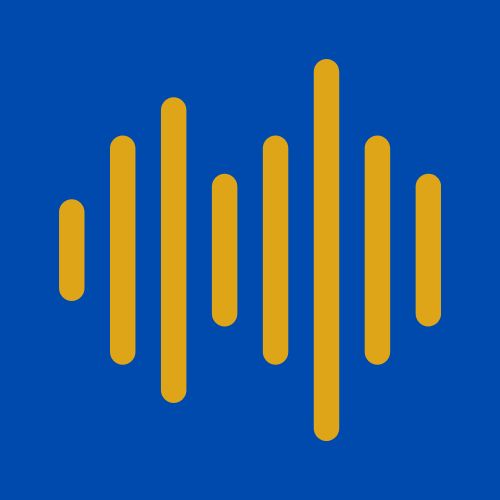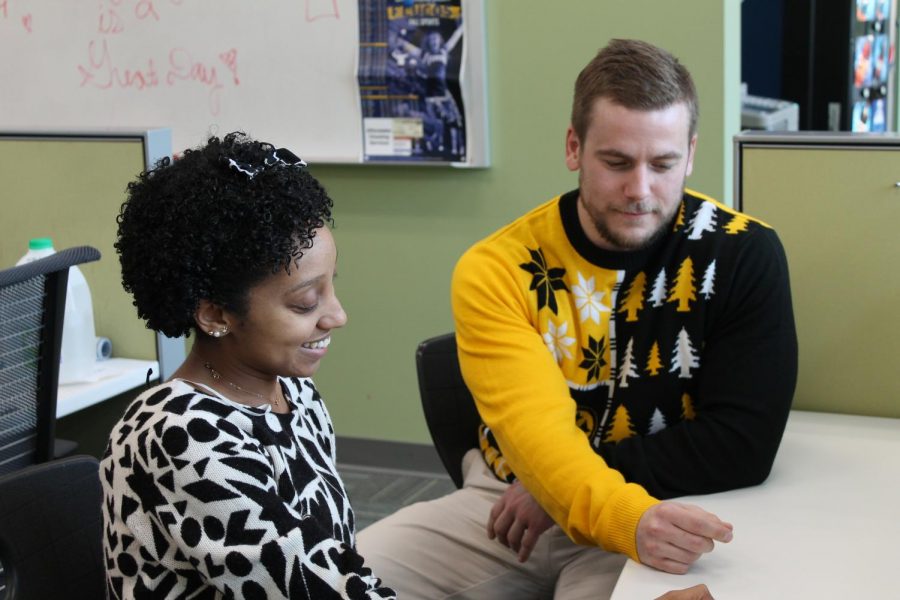Region Ten Helps At-Risk Students
December 20, 2018
Therapeutic Day Treatment Counselors Jordan Divine and Alicia Patterson discussing treatment options. Photo courtesy of FCHS Journalism.
Region Ten, a community service board in Fluvanna, has a special role in the high school. With 40 boards serving the cities and counties of Virginia, Region Ten operates under the Department of Behavioral Health and Intellectual Disabilities. Known at FCHS as Therapeutic Day Treatment, or TDT, the program works with at-risk students in 8th to 12th grade.
The Therapeutic Day Treatment Counselors who work at FCHS are Jordan Divine and Alicia Patterson.
Students experiencing depression, anxiety, hyperactivity, or a lack of social skills are among those for whom Region Ten provides assistance. According to Divine, solutions for different students are individualized depending on their goals. Therapeutic Day Treatment focuses on behavioral or emotional issues that hamper students’ functioning at school, and providing them with regular, intensive support.
Support may include setting up behavioral plans, communication with parents and teachers, and skills training. Using individual and small group sessions, the Region Ten staff works toward helping students achieve their personal or academic goals.
Divine has worked with Region Ten at FCHS for the past several years. Some students know him better as one of the school’s wrestling coaches. Others know him as the son of history teacher Luke Divine. He has worked in group homes, ran a residential facility, and worked as a community-based counselor for people from ages five to 78.
Divine graduated from Trinity College in Hartford, Connecticut where he studied psychology, neuroscience, and philosophy. “I enjoy helping people,” said Divine, who works hard to give support to students throughout the school day. “There’s never a dull moment,” he said.
As for Patterson, she was formerly with YCAPP, a group which offers similar services to students at FCHS. She joined Region Ten this school year.
Starting her career in criminal justice, Patterson got her masters degree in psychology. She is hoping to eventually become a Special Education teacher. In the meantime, Patterson said the switch from YCAPP to Region Ten has been easy. “We offer more mental health services than YCAPP does,” she said.
Patterson said the key to working with Region Ten is building a rapport with students. “I think that is the number one thing you have to have in order to help someone,” she said, while noting the most challenging part of her job is “not taking things personally.”
How do students access Region Ten’s services? They can speak to an administrator, school counselor, or teacher and ask them to refer them for assistance. “They can always go to the main office in Palmyra and set up an appointment with the clinicians there,” said Patterson. You can contact Region Ten by visiting their website or by calling 434-972-1800.

